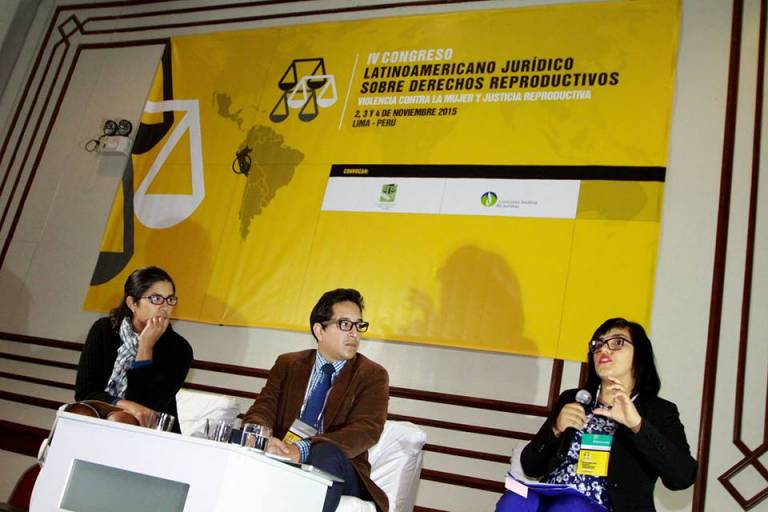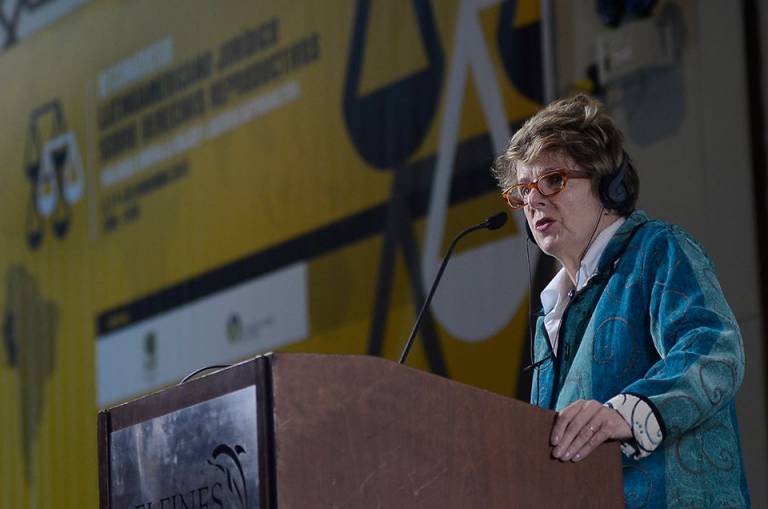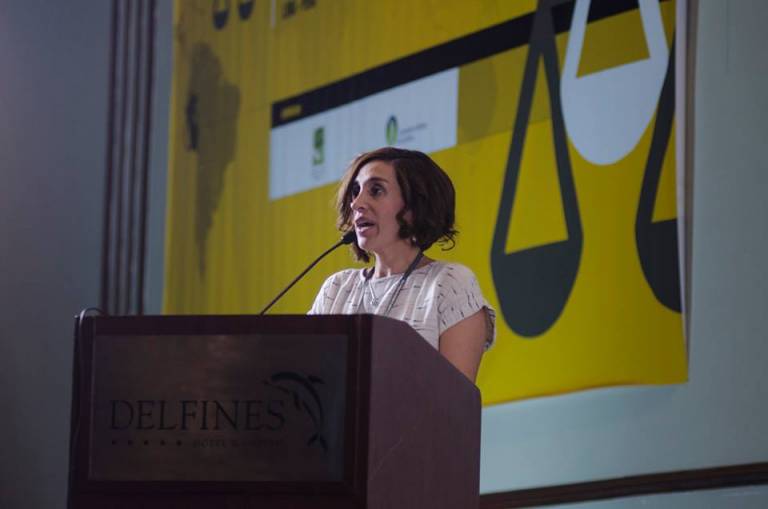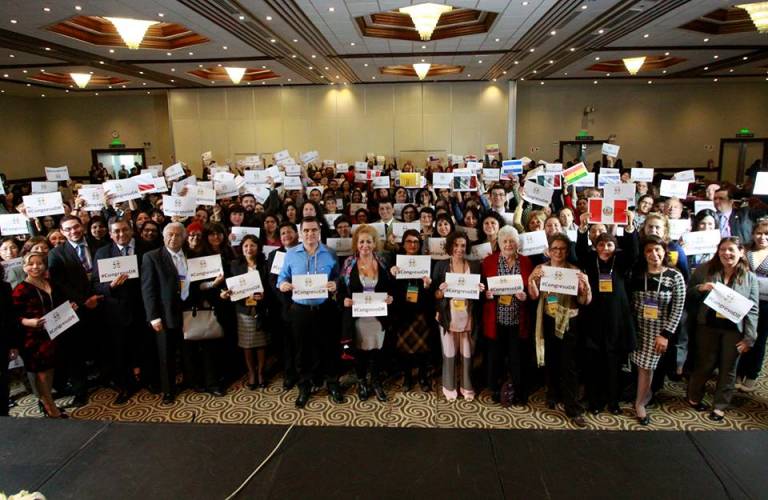
On November 2-4, Oscar Cabrera, Executive Director of the O’Neill Institute, and I participated in the IV Latin American Legal Conference on Reproductive Rights in Lima, Peru. The Conference takes place every two years, bringing together academics, judges and other judicial officers, legislators, activists and civil society representatives. This year, the Conference focused on the intersections between violence against women and reproductive rights in Latin American.
Experts touched on a range of related themes over the course of the Conference, including the role of criminal law in the area of reproductive rights; access to justice in cases of violations of reproductive rights; and State responsibility related to the right to be free from violence. A few highlights from the Conference are included below:

Rebecca Cook, Professor Emerita & Co-Director of the International Reproductive and Sexual Health Law Programme at the University of Toronto, delivered a keynote speech that explored transnational perspectives on gender stereotyping. She stressed the need to not only name gender stereotypes that exist in various contexts (e.g., the criminal justice system, the military, the health care system, etc.) but also identify the harms that they cause and implement strategies to dismantle such stereotypes.
Rodrigo Uprimny, member of the UN Committee on Economic, Social and Cultural Rights, discussed the role of judicial officers in achieving reproductive justice, highlighting their obligation to respect, protect and fulfill human rights. A former auxiliary magistrate for the Constitutional Court of Colombia, he concluded his presentation with a compelling story about his own experience deciding a landmark case that limited the rights of parents to consent to surgery on their intersex children.

Ximena Casas, Senior Advocacy Official at Planned Parenthood Global, presented the results of the forthcoming report “Stolen Lives” (or “Vidas Robadas” in Spanish), which explores the impact of forced pregnancy on young adolescents in Latin America. These pregnancies, many of which are the result of sexual violence, have dire consequences for the physical, mental and social health of girls 9-14 years old in Ecuador, Guatemala, Nicaragua and Peru.
I left the Conference feeling grateful to have had the opportunity to witness and engage in so many rich discussions about the important role that law, particularly international human rights law and comparative law, can play in eradicating violence against women and advancing reproductive rights in Latin America. Until 2017!




